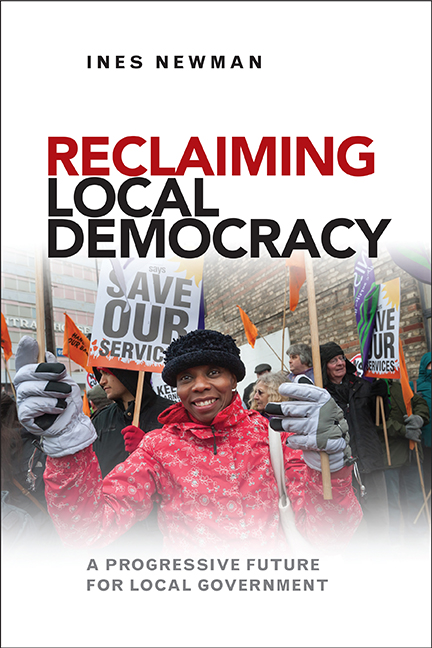Book contents
Four - An ethical framework for local government
Published online by Cambridge University Press: 24 February 2022
Summary
This chapter seeks to develop an ethical framework that can act as a guide for action for councillors, municipal leaders and officers in any local government context. Unless policymakers have a clear concept of the fundamental purpose of their actions, they will be blown this way and that – following the latest central government initiative. It is rather like pilates: the body politic needs a core strength to be able to operate effectively and sustainably. This chapter will argue that inherent need can provide that basic strength. The concept of need ‘connects an understanding of our interdependency as human beings with arguments about the rights that we can assert against each other’ (Dean, 2010, p 2, emphases in original).
The ethical framework that I develop here brings together a number of interrelated concepts around needs, rights and social justice. As a whole, they provide a set of challenges that councillors and other policymakers can use to interrogate a policy proposal to see if it accords with the ethical framework. The chapter is organised as a series of challenges that can be used to question local authority policy. Some of these challenges have already been identified in Chapter Three. The importance of addressing inequality, both of resources and power, is a central theme in the ethical framework. Other elements of the framework are introduced in this chapter: for example, the task of dealing with diversity and with future generations.
The ethical framework in this chapter is my personal answer to tricky questions of what local authorities should be doing. Others with differing political views will want to try and prioritise, or to add challenges or remove them. There is plenty of scope to interpret how these challenges should be addressed: I neither want to, nor am I attempting to, limit political debate. Clearly, also, moral norms are different in time and place. The issues of future generations and social rights, for example, have risen to greater prominence over the last 40 to 50 years. So, the challenges may change over time, but my attempt to develop a framework from a strong philosophical and ethical base presents a task for those who do not agree with the conclusions reached. I am reflecting on values and principles and what can be ‘systematically deduced to be right’ (Dean, 2010, p 172).
- Type
- Chapter
- Information
- Reclaiming Local DemocracyA Progressive Future for Local Government, pp. 73 - 100Publisher: Bristol University PressPrint publication year: 2014



